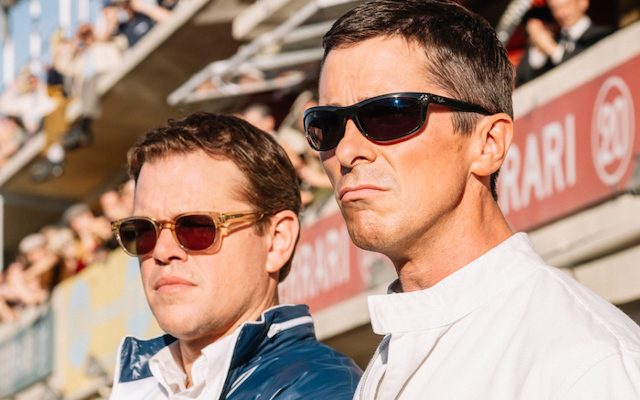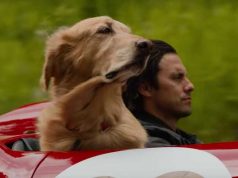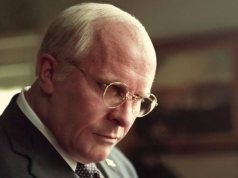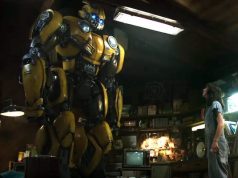
There are no legal skirmishes in “Ford v Ferrari.” The battles between the automakers take place in boardrooms, racetracks, and other places where men have car-measuring contests. Directed by James Mangold, who brought similar confidence to “Walk the Line” and “3:10 to Yuma,” this is a smooth, crowd-pleasing true story about Americans striving to outpace foreign rivals in a feat of engineering — the kind of engineering that goes vroom vroom! The motives are petty and capitalistic (making a Ford that goes faster than a Ferrari ain’t exactly the space race), but the story is calibrated to emphasize the charms of its characters, not the competition or the patriotism. The movie also happens to feature some of the best cinematic racing ever filmed.
Carroll Shelby (Matt Damon), a folksy, feisty Texan who quit racing for health reasons but still drives like a racer in his daily life, and Ken Miles (Christian Bale), a mercurial English gear head who’s “difficult” to work with but gets results, have known each other for a while when we begin, in 1963. Carroll has his own automotive company; Ken is racing on the side while running a garage that he rules in the manner of a record store snob. Carroll is recruited by the Ford Motor Company after a bright young junior executive named Lee Iacocca (Jon Bernthal) suggests to owner Henry Ford II (Tracy Letts) that they get into — and start dominating — the world of auto racing. Ferrari is the current undisputed leader, and after failing to vanquish the company the old-fashioned way (i.e. by buying it — Enzo Ferrari refuses to sell), Ford chooses the next best route: pouring unlimited funds into getting the best car designers and drivers to produce a car that will win the 24 Hours of Le Mans race and stick it in stupid old Enzo Ferrari’s face. Carroll Shelby is whom they call on to oversee the project; Ken Miles is whom Carroll selects to be the driver, much to the dismay of the Ford execs — especially bootlicking Leo Beebe (Josh Lucas) — who feel Ken’s boisterous, unkempt persona isn’t a good representation of the Ford brand.
All of this takes some time to set up. The cars move fast; the movie, not particularly. But the screenplay, by brothers Jez and John-Henry Butterworth (“Edge of Tomorrow”) and Jason Keller (“Machine Gun Preacher”), though leisurely paced, gives Carroll and Ken plenty to do, separately and together: convincing Ford to let them do their thing; fighting with each other about how to do it; building, testing, driving, and improving the car; navigating the politics and bureaucracy of the Ford company. Carroll’s family isn’t mentioned (in real life he was married several times and between wives when the film takes place), but Damon plays him like a chummy dad, comfortable with his legacy as a former racer who still gets asked to sign autographs now and then. Ken has a wife (Caitriona Balfe) to fill the role of Concerned Wife on Phone (a must in any biopic about a bold man), and a son (Noah Jupe) who idolizes him, and the latter relationship yields some sweet moments. Ken, who must learn to be a team player if he wants to get work and support his family, is the only character with an arc, which seems like a shame for Carroll, who has just as much screen time but is essentially the same at the end as he was at the beginning. (Not the same: Henry Ford II, who has a very amusing change of heart about the intricacies of auto racing after Carroll takes him for a spin around the track.)
And the racing! I’m not a car guy. All the jargon about sizes of engines and whatnot goes over my head. I couldn’t care less who wins a race, and I have no particular affection for the Ford corporation. But watching cars drive very fast around dangerous curves, cameras low to the ground, tires screeching like Satan himself, the action edited for maximum pulse-pounding effect — it doesn’t matter who’s driving or for what reason, that stuff is exciting. The danger and thrill of racing come across loud and clear (especially loud), and the participants’ enthusiasm for it is infectious. It’s a sturdy, old-fashioned movie, made from a template but delivered with gusto.
B (2 hrs., 32 min.; )





